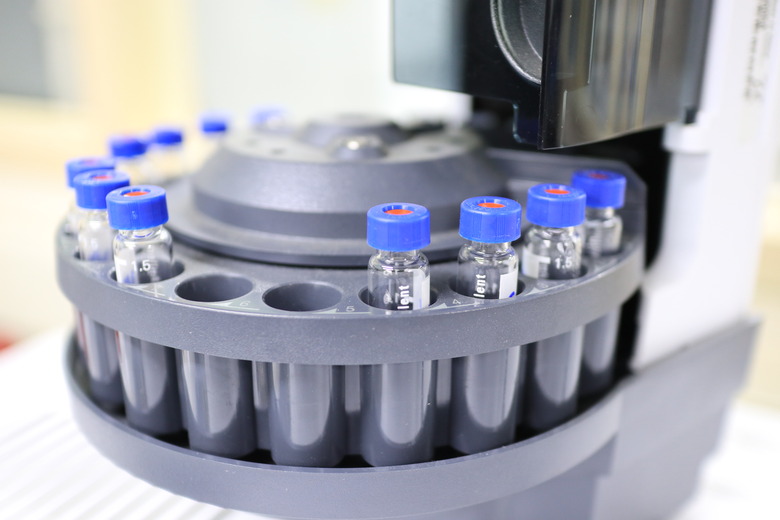The Differences Between HPLC & GC
HPLC (high performance liquid chromatography) and GC (gas chromatography) are both methods scientists use to analyze samples to determine what the sample contains or the concentration of molecules in the sample. Both use the same principle, that heavier molecules will elute, or flow, more slowly than lighter ones (polarity also plays a role in elution time). Although the idea is the same, GC and HPLC have several differences.
The Mobile Phase
The Mobile Phase
The mobile phase of chromatography equipment is the substance that moves the sample through the machine. In HPLC the mobile phase is a liquid made up of an organic solvent, ultrapure water and other ingredients to ensure its compatibility with the sample. GC uses gas for its mobile phase. Gases used include helium, nitrogen, argon or hydrogen, depending on what is being analyzed.
The Columns
The Columns
As samples travel over chromatography columns, the sample and mobile phase interact with the column contents causing the components of the sample to elute at different time. HPLC columns are typically four-to-six inch-long metal or glass tubes tightly packed with silica or differing carbon chain lengths. GC systems have coiled capillary columns with interior walls coated with various materials depending on the lab's needs. Stretched out, GC columns can reach lengths of 100 feet.
The Samples
The Samples
GC is used for volatile compounds (those that break down rapidly) while HPLC is better for less volatile samples. If a sample contains salts or carries a charge, it must be analyzed using HPLC, not GC.
Temperature Control
Temperature Control
GC columns are housed in an oven within the machine. A computer changes the temperature while samples are analyzed. The higher the temperature, the faster the sample elutes, but temperatures that are too high produce poor results. HPLC columns are kept at a stable temperature (most often room temperature) at all times.
References
Cite This Article
MLA
Painter, Tammie. "The Differences Between HPLC & GC" sciencing.com, https://www.sciencing.com/differences-between-hplc-gc-7456786/. 13 March 2018.
APA
Painter, Tammie. (2018, March 13). The Differences Between HPLC & GC. sciencing.com. Retrieved from https://www.sciencing.com/differences-between-hplc-gc-7456786/
Chicago
Painter, Tammie. The Differences Between HPLC & GC last modified March 24, 2022. https://www.sciencing.com/differences-between-hplc-gc-7456786/
